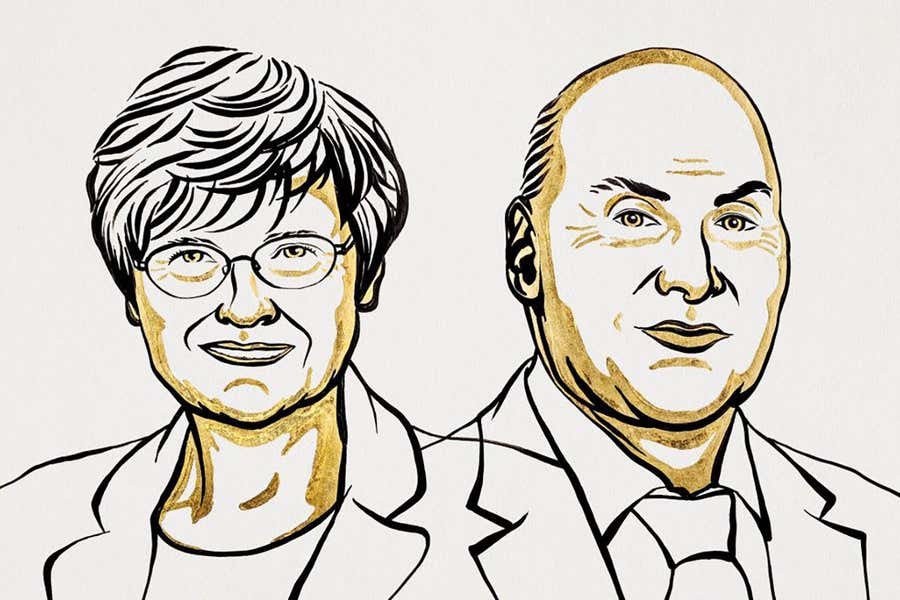Katalin Kariko e Drew Weissman were awarded the 2023 Nobel Medicine Prize for their mRNA research. This molecule, fundamental for cellular communication, has become the key to developing vaccines against covid-19: research that not only concerns the global response to the pandemic, but has also opened new perspectives for the future of medicine.
mRNA: the molecule that can change the course of medicine
mRNA, or messenger RNA, serves as a bridge between DNA, the genetic “instruction manual” of our cells, and proteins, the “machinery” that perform most cellular functions. It has long been thought about using mRNA for medical purposes to induce human cells to produce proteins that they normally would not. However, there was an obstacle: if the synthesized mRNA was injected into the body, it was recognized as foreign and destroyed by the immune system.
During their time at the University of Pennsylvania in the 90s, Karikó and Weissman discovered a way to chemically modify synthesized mRNA, making it appear like that produced naturally by mammalian cells. It took another 10 years to perfect the technique: in the 2000s, the two researchers realized that replacing uridine, one of the "letters" of the mRNA, avoided causing inflammation and did not compromise the genetic code. This allowed the mRNA to escape attack by the immune system, opening the door to new therapeutic possibilities.

From theory to a celebrated and criticized vaccine
The technology developed by Karikó and Weissman has been licensed by biotech companies such as Moderna and BioNTech. The latter then collaborated with Pfizer, leading to the creation of two of the main covid-19 vaccines used during the pandemic. Vaccines contain instructions to produce the coronavirus spike protein: once injected, the body begins producing this protein, triggering an immune response.
the rest is history, and we have experienced all its developments: it is good here to separate the consequences of the pharmaceutical, social, healthcare and political choices made during the coronavirus. He made choices which, as time has shown us, were not free from errors, and whose impact can only be assessed over the years. This in no way affects the scientific value of research and a discovery like this.
Nobel Prize for Medicine: beyond covid-19
As mentioned, the potential of this research goes far beyond the response to the coronavirus. The ability to rapidly produce vaccines against new viruses is just the tip of the iceberg.
With continued research and development, mRNA could further revolutionize the field of medicine, offering solutions to other health challenges as well.
The first of all? That of cancer. As they say: he who lives, will see.


